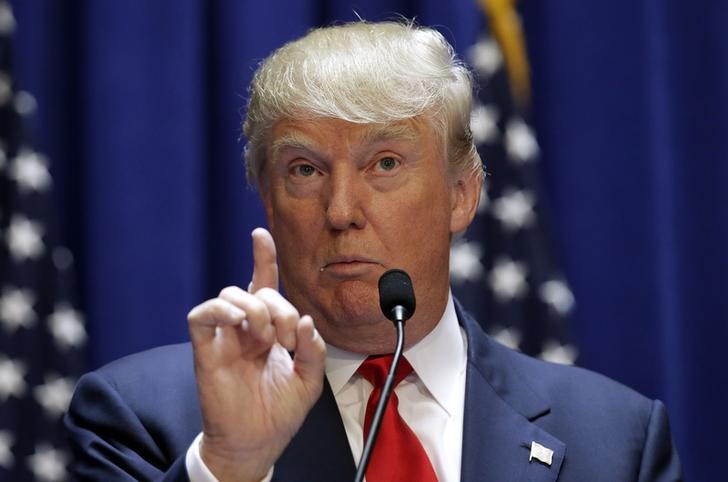(Bloomberg) -- President Donald Trump’s shifting positions on economic negotiations with China are confusing investors and once again raising the prospect of a trade war between the world’s two largest economies.
Trump on Wednesday backed away from a framework just three days after it was announced as members of Congress and trade hawks close to his administration criticized him for going too soft on China.
“Our Trade Deal with China is moving along nicely, but in the end we will probably have to use a different structure in that this will be too hard to get done and to verify results after completion,” Trump said on Twitter.
His tweet marked an abrupt shift from Treasury Secretary Steven Mnuchin’s weekend statement that the U.S. was halting plans to slap tariffs on as much as $150 billion in Chinese imports as the two countries tried to address their most significant trade differences. Beijing has vowed to retaliate with duties on everything from soybeans to airplanes.
Financial markets rallied earlier this week after Mnuchin said the tariffs were "on hold." After Trump’s wavering, it appears investors will have to wait for more clarity.
“The market is now expecting turbulence, because on a day-to-day basis, the communication is inconsistent and contradictory,” said Stefan Selig, managing partner at BridgePark Advisors and a former undersecretary for international trade at the U.S. Commerce Department in the Obama administration. “Given the complexity of these issues, the more sophisticated people realize this is going to be an ongoing and important struggle that’s not going to be solved overnight.”
Inconsistent Messages
Some White House officials said that vehement disagreements within Trump’s trade team were to blame for the inconsistent messages. Trump’s decision to hold off on tariffs was also colored by concern that it could harm talks over North Korea’s nuclear program, in which China plays a pivotal role as the isolated nation’s closest ally.
Trump has backpedaled before with China. He reneged on a campaign promise to label China a currency manipulator on the first day of his presidency, and his Treasury Department has consistently refrained from doing so. Last month, when Mnuchin in a routine report said that no country was manipulating it’s currency, Trump tweeted three days later that China was “playing the currency devaluation game.”
After boasting of the truce’s benefits for farmers in tweets on Monday, Trump first indicated on Tuesday he was having second thoughts as some of his loyalists publicly criticized theagreement. Asked if he was pleased with the direction of his administration’s negotiations with China, Trump told reporters “no, not really.” He later added, “They’re a start.”
But the public criticism appears to be outweighing concern about a trade war among farm-state Republicans, retailers and others. Trump has also found himself under attack for retreating from penalties his administration announced against a large Chinese telecommunications company, ZTE Corp (HK:0763)., for violating U.S. sanctions against Iran and North Korea.
China ‘Out-Negotiating’ U.S.
“We supported Trump in the elections, support a lot of the things he stands for, and we need him to come through on trade like he promised,” said Dan DiMicco, a former steel-industry executive who advised Trump during the 2016 election campaign. “There really is no negotiating with the Chinese government.”
Republican Senator Marco Rubio of Florida was more pointed.
“Sadly #China is out-negotiating the administration & winning the trade talks right now,” Rubio tweeted on Tuesday. “They have avoided tariffs & got a #ZTE deal without giving up anything meaningful.” He added, “This is #NotWinning.”
Mnuchin announced Sunday the U.S. and China had agreed on a “framework” for trade talks. But in a joint statement, the two nations provided scant details beyond vague promises such as a China pledge to buy “significantly” more U.S. goods.
Trump’s about-face on ZTE adds to his allies’ concerns. The Commerce Department announced April 16 that the company would be cut off from its U.S. suppliers, crippling its business, for what Commerce Secretary Wilbur Ross called “egregious” violations of U.S. sanctions. But Trump said on Tuesday that he had agreed to re-examine the matter as a personal favor to Chinese President Xi Jinping.
Ross plans to visit Beijing in early June to hammer out the details of the trade deal with China and how it would increase its purchases of American goods -- particularly of energy and farming products, his office said on Tuesday.
